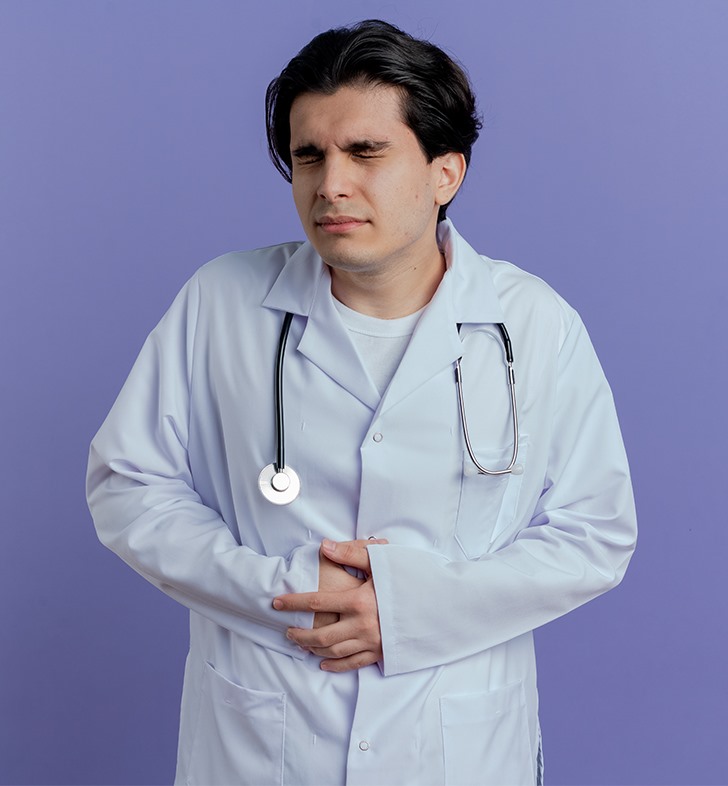
Bladder Exstrophy
What is bladder exstrophy? Bladder exstrophy is a birth defect (congenital abnormality) where your bladder develops inside out. Your bladder is a small organ in the low abdomen (belly). Shaped like a balloon, it holds urine(pee) until you’re ready to go to the bathroom. In newborns with bladder exstrophy, the skin and pelvis do not join correctly. As a result, the bladder may not close. It sticks out of the skin on the baby’s belly. The bladder may also be flat instead of round.
How does bladder exstrophy affect the body? Bladder exstrophy affects a baby’s urinary system. Typically, when your bladder fills with urine, nerve signals tell your brain that your bladder is full. To urinate (pee), your bladder contracts (squeezes) and forces urine through your urethra and out of your body. With bladder exstrophy, the cloaca (clo-AY-ka) doesn’t develop as it should. The cloaca is the area where the reproductive, digestive and urinary organs come together. Babies with bladder exstrophy empty urine through the opening in the abdomen instead of through the urethra.
What are the types of bladder exstrophy-epispadias complex? Bladder exstrophy is one condition in a group of birth defects called bladder exstrophy-epispadias complex (BEEC). Some babies are born with one type of BEEC. Others have multiple BEEC conditions.
The other types of BEEC include:
Epispadias occurs when a baby’s
urethra does not form properly.
Cloacal exstrophy occurs when the
genitals, bladder and rectum do not separate.
How common is bladder exstrophy?
Bladder exstrophy is rare. It
affects around 1 out of every 50,000 newborns.
What causes bladder exstrophy?
Experts don’t know why bladder
exstrophy occurs. There is some evidence that environmental factors and
genetics play a role.
Risk factors for bladder exstrophy
include:
Family history: Adults who had
bladder exstrophy as children have about a 1 in 70 chance of having a child
with the condition. The risk is higher if parents have another child with
bladder exstrophy.
Race: Bladder exstrophy is most
common in white families.
Sex: Males are up to three times as
likely as females to have bladder exstrophy.
Fertility treatments: Using assisted
reproductive technology such as in vitro fertilization (IVF) can increase the risk
of bladder exstrophy. Some studies have shown that parents who undergo
fertility treatments are about seven times more likely to have a child with
bladder exstrophy.
What are the symptoms of bladder
exstrophy?
The main symptom of bladder
exstrophy is the bladder protruding through an opening in the belly. Bladder
exstrophy can lead to other symptoms, including:
Smaller-capacity bladder.
Lower-than-usual belly button.
Anus that is lower than usual.
Separated pelvic bones.
Undescended testicles (when the
testicles are not in their usual placement).
In some cases, babies may also have
inguinal or umbilical hernias. Hernias occur when part of the stomach lining
(and sometimes intestines) bulges out of the abdominal wall. Hernias often need
surgery to put organs in the correct place.
How is bladder exstrophy diagnosed?
In a baby born with bladder
exstrophy, their bladder often is sticking through the abdomen wall at birth.
Providers may use MRIs or X-rays to confirm a bladder exstrophy diagnosis and
check for other problems.
If a baby has epispadias, providers
may detect it when the baby has frequent bladder infections or bladder control
problems.
Sometimes, healthcare providers spot
bladder exstrophy on an ultrasound or fetal MRI before birth. Signs that your
baby may have bladder exstrophy include:
A bladder that doesn’t empty as
expected.
Separated pubic bones (bones that
form the pelvis).
Smaller-than-usual genitalia.
An umbilical cord that connects
lower on the belly than usual.
How is bladder exstrophy treated?
Babies born with bladder exstrophy
need surgery to correct the condition.
Sometimes, babies have one surgery
to close the abdomen and repair the urethra. Or babies may have surgery in
three stages:
Immediately after birth, babies have
an operation to close the pelvis and bladder.
Around 6 months of age, babies have
another operation to rebuild the sex organs and urethra.
Around 4 to 5 years of age, or at
potty training age, surgeons fix the bladder so that it can hold urine (urinary
continence) until it’s time to expel it.
The type and number of surgeries
your baby needs depend on how severe their symptoms are. Your baby’s surgeon
will explain the best approach for your baby’s needs. Some children may need
additional surgeries to achieve continence as they grow.
How can I prevent bladder exstrophy?
Because there is no clear cause of
bladder exstrophy, parents can’t do anything to prevent it. Parents with known
risk factors should speak with their healthcare provider about potential
testing and treatment plans.
What is the outlook for babies with
bladder exstrophy?
Most babies have good long-term
outcomes if they receive surgery to correct bladder exstrophy. Some children
have ongoing challenges with their bladder or kidneys, including:
Kidney infections.
Kidney stones.
Urinary incontinence.
Providers treat children for these
issues as needed. Most children who receive treatment can do their usual
activities without restrictions.